Most songwriters don’t try to do anything new. They’re busy enough just trying to write a good song. Stretching the form itself – that is something rarely tried mostly. Mostly the mission becomes about working within the form, and the challenge of discovering something new within this limited space.
Which is no small feat: there are so many disparate aspects to songwriting one must master before gaining the knowhow, power and ability to write any song well, so it makes perfect sense.
Even those undisputed geniuses of song, from Gershwin, Stephen Foster, Woody Guthrie and Hank Williams to Dylan and The Beatles, Paul Simon and beyond, all had to master the form itself before doing their greatest work. None of them invented a new form.
Which is only one reason why Don McLean’s “American Pie” remains such a remarkable song. Sure, Bob Dylan had written multiverse songs that blew our minds with expansive, poetic lyrics before this. He picked up old forms common in folk music both Irish and American, which in turn echoed traditions of romantic poetry: long, rhymed epics that tell compelling, often dark, spiritual, and mysterious narratives which gain momentum in meter, with slowly unfolding force.
But in American popular music, few songwriters wrote epics, and none ever attempted anything so bold as to describe the rise and fall of rock & roll in an infectious and expansive radio-friendly pop song.
He coined the term “the day the music died” to paint the scene and its aftermath of a tragedy made mythic by its compounded horror and impact on the country and its popular music: the triple death on February 3, 1959 of Buddy Holly, Ritchie Valens and JP Richardson, the “Big Bopper” in a plane crash.
It’s his magnum opus, and though it stretched what was considered a reasonable time-limit for a radio single from the accepted 3 minutes to more than twice that, and also accepted limits of content, it struck a chord then which continues to resound to this day.
Released in 1971 from the album of the same name, it went to number one in America, where it stayed for four weeks. And did the same around the world. When the RIAA assembled their Songs of the Century project of listing the most important songs of the 20th century, “American Pie” was the fifth song on that list.
A New York native, Don was drawn to folk music first – not rock & roll -and fell in with Fred Hellerman and Erik Darling of The Weavers, which was Pete Seeger’s group. Always a great vocalist, he became a inspired interpreter of folk songs, learning the delicate art of transforming history into song.
But like Bob Dylan, who also started by learning folk songs before ever attempting to write his own, Don McLean started by establishing his own formidable folk music foundation, from which he could reach new realms. Soon his focus and passion was not about mastering songs of the past, but creating his own new ones. And in this cataclysmic tale of American rock and roll turning so suddenly tragic, he found a way to piece together many disparate pieces, to create a song unlike any other.
Much of its greatness and timeless charm has to do with his brilliant, and overtly Dylan-inspired lyrics, which arrived like a fun puzzle for rock & rollers – especially stoned ones – to decipher.
It’s a song about rock & roll, but also about the land where that music was born, America. It was the music of the youth in this young country, the first one before all others to leave the planet to touch the moon, and then return. This song came less than two years since the moon-landing. That the world was changing profoundly then, in ways both wonderful and worrisome, was obvious, and rock & roll was its soundtrack. It was an electric and anthemic, if often enigmatic, music for this “generation lost in space.”
Videos by American Songwriter
“It was a well-written song, and I felt it was a really good idea. But when I first played it, people yawned.”
The song is filled to over-capacity with references to the momentous musicians who delivered this mystic music, as well as musical events of our time, and resonated precisely because it celebrated, and elaborated, on these touchstones. It sang of a generation united and empowered by a new religion, one based on youth as well as spirituality and sacred song. Rock & roll.
But it also reflected in each verse and the chorus the dark side of this thing. Revolving around the heartbreak of losing our young heroes right while their songs are on our lips, and our hearts and radios, it predated the deep sorrow that was to come of losing so many we loved.
That darkness came into rock & roll early and with brutal force. There’s Altamont, where The Stones made the terrible mistake of trusting the Hell’s Angels to do their security. It resulted in the stabbing death of Meredith Hunter right there in the audience.
Then there was Manson, an aspirant rock & roll songwriter himself, gone crazy on Beatles’ songs he twisted and turned into a murder spree.
McLean uses religious terms throughout, and with ease, as it was already there in a big way, as in the name Hell’s Angels. All emanated from the “sacred store” of rock & roll, but made this sacred force into something entirely unholy. As the song progresses, the darkness takes over: Satan is laughing in delight as the Father, Son and the Holy Ghost leave town forever.
In almost every verse he delivers the poetry and power of rock and roll, as well as the flip-side, the obsessional danger inherent in that poetic power, when in the wrong hands or mind. He took on a new aspect of modern pop music, which is that these songs filled with often-surreal and drug-inspired imagery, while benign in intention, were often and easily misinterpreted as galvanic prophecies of impending disaster needing some action.
But none of it would have mattered if not for a key ingredient that came straight from the heart of this gifted songwriter: A great melody. With words like these, and so many of them, it’s easy to understand why it’s the lyric which gets the most attention. But that melody on the chorus of this complex song is beautifully simple and sweet. It’s a folk-song, sing-along tune, without which this entire enterprise might never have been noticed.
Yet there’s more. This songwriting tour-de-force was remarkable, but to then transform this sprawling story into a modern pop song – a radio hit – is another whole achievement, and one perhaps more unlikely than the writing of the song.
That achievement, as Don says in the following, was one he shared gratefully with the producer, Ed Freeman, and his concept for its dynamic, multi-tempo arrangement.
“American Pie” went to number one on the pop music charts here and abroad, and stayed there for many weeks. When Madonna covered it many years later, her version also went to number one.
Since it first emerged, people have been hungry to understand each line, and Don was forever beseeched with questions about its meaning. He was resistant, wisely, in cracking its codes, and instead offered this coy response about its meaning: “It means I don’t ever have to work again if I don’t want to.”
“Dignified silence,” he said, was the best answer, preferring to leave listeners on their own to decipher his words.
He did seem to indicate, at one point, that the jester wearing a borrowed coat from James Dean was meant to be Dylan. Bob, however, didn’t love this suggestion at all:
“A jester?” he asked in 2017. “Sure, the jester writes songs like ‘Masters of War,’ ‘A Hard Rain’s a-Gonna Fall’ and ‘It’s Alright, Ma.’ Some jester. I have to think he’s talking about somebody else.”
Then Dylan added, “Ask him.”
Good advice. Generally, if Bob Dylan offers advice on any subject related to songwriting, it makes sense to take it to heart.
So we went to the source, to Don McLean, to get all the answers about this singular song.
DON McLEAN: I was trying to create a dream. So there were lines in there that were dream-like almost in order to connect other concepts that I had that were semi-real. But it was a dream, and the idea came from the idea that politics and music flow parallel to one and other.
I wanted to write a song that summed up everything I felt about America and music, and I did it, and it turned out beyond my wildest dreams. It didn’t take a long time to write. The body of the song was written pretty quickly, once I got the gist of where I was going. The first part, the opening part in the chorus, I had for a few months; I couldn’t quite figure out where to go with it. Then I decided to speed it up and change it. So I found a way to do it. The (Buddy Holly plane crash) is the start of it, but then it moves into a whole other realm.
It was a well-written song, and I felt it was a really good idea. But when I first played it, people yawned. They didn’t know what I was talking about. It was way too long.
It was just verse-chorus-verse-chorus, but we broke that up by having a slow beginning and a slow end. Ed Freeman, who produced the record, deserves a lot of credit for making a record out of it that was very, very special. And which was commercial.
I also deserve a lot of credit, because I made the band play it until it was right. I had to fight on so many things with people who are my allies. Ed Freeman and I damn near killed each other a few times over some of this stuff. I said, “This is not right.”
Finally we got a guy named Paul Griffin, a black piano player. He came in, and he just jumped all over that song. He understood exactly how to play that song, and he played the living hell out of it. And I drove that guitar right up his ass, in his ear phone, my acoustic, and that’s what made him jump all over it, and that’s how it happened.
And then I said, “Now you’re talkin’! Now we’ve got the track.”
This stuff isn’t easy. If I’d have given in, we would have had a lousy track and you have never heard the song.
You have to have great music in your head. Cole Porter, Gershwin. You’ve got to put good stuff in to get good stuff out. If you want to write songs, you’ve got to go back to the Irving Berlins, and The Beatles, and the good stuff from the 1950s.
See our analysis on the meaning of “American Pie” 50 years after it hit #1
From the album American Pie, 1971.
- Don McLean – vocals, acoustic guitar
- Paul Griffin – piano
- David Spinozza – electric guitar
- Bob Rothstein – bass
- Roy Markowitz – drums, tambourine
- West Forty Fourth Street Rhythm and Noise Choir – chorus
American Pie
Words & Music by Don McLean
A long long time ago
I can still remember how
That music used to make me smile
And I knew if I had my chance
That I could make those people dance
And maybe they’d be happy for a while
But February made me shiver
With every paper I’d deliver
Bad news on the doorstep
I couldn’t take one more step
I can’t remember if I cried
When I read about his widowed bride
Something touched me deep inside
The day the music died
So
Chorus:
Bye, bye Miss American Pie
Drove my Chevy to the levee but the levee was dry
And them good ole boys were drinking whiskey and rye
Singin’ this’ll be the day that I die
This’ll be the day that I die
Did you write the book of love
And do you have faith in God above
If the Bible tells you so?
Do you believe in rock and roll?
Can music save your mortal soul?
And can you teach me how to dance real slow?
Well, I know that you’re in love with him
‘Cause I saw you dancin’ in the gym
You both kicked off your shoes
Man, I dig those rhythm and blues
I was a lonely teenage broncin’ buck
With a pink carnation and a pickup truck
But I knew I was out of luck
The day the music died
I started singin’
(chorus)
Now, for ten years we’ve been on our own
And moss grows fat on a rolling stone
But, that’s not how it used to be
When the jester sang for the king and queen
In a coat he borrowed from James Dean
And a voice that came from you and me
Oh and while the king was looking down
The jester stole his thorny crown
The courtroom was adjourned
No verdict was returned
And while Lennon read a book on Marx
The quartet practiced in the park
And we sang dirges in the dark
The day the music died
And we were singin’
(chorus)
Helter skelter in a summer swelter
The birds flew off with a fallout shelter
Eight miles high and falling fast
It landed foul on the grass
The players tried for a forward pass
With the jester on the sidelines in a cast
Now the half-time air was sweet perfume
While sergeants played a marching tune
We all got up to dance
Oh, but we never got the chance
‘Cause the players tried to take the field
The marching band refused to yield
Do you recall what was revealed
The day the music died?
We started singin’
(chorus)
Oh, and there we were all in one place
A generation lost in space
With no time left to start again
So come on Jack Be Nimble, Jack Be Quick
Jack Flash sat on a candlestick
‘Cause fire is the devil’s only friend
Oh and as I watched him on the stage
My hands were clenched in fists of rage
No angel born in hell
Could break that Satan’s spell
And as the flames climbed high into the night
To light the sacrificial rite
I saw Satan laughing with delight
The day the music died
I met a girl who sang the blues
And I asked her for some happy news
But she just smiled and turned away
I went down to the sacred store
Where I’d heard the music years before
But the man there said the music wouldn’t play
And in the streets the children screamed
The lovers cried, and the poets dreamed
But not a word was spoken
The church bells all were broken
And the three men I admire most
The Father, Son, and the Holy Ghost
They caught the last train for the coast
The day the music died
And they were singing
Bye, bye Miss American Pie
Drove my Chevy to the levee but the levee was dry
Them good ole boys were drinking whiskey and rye
Singin’ this’ll be the day that I die
This,ll be the day that I die
© Don McLean/Universal Music Publishing Group, Songtrust Ave, Spirit Music Group


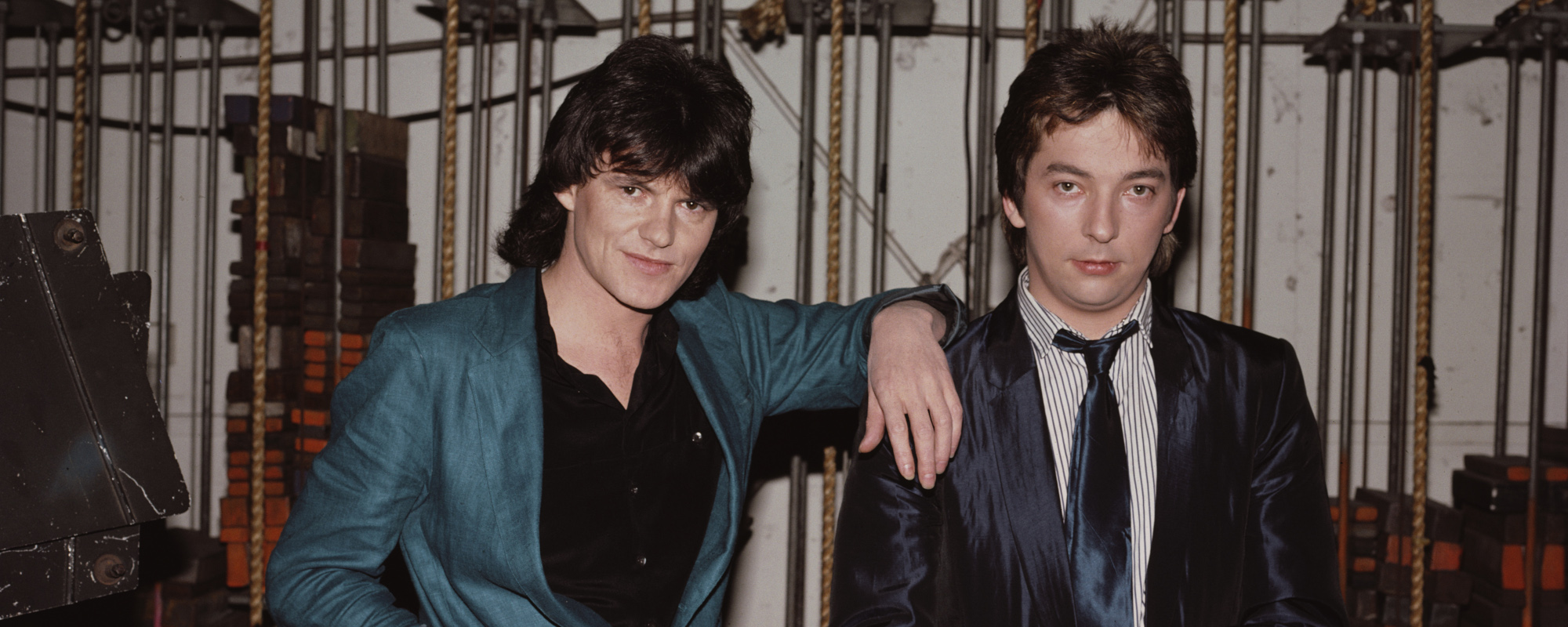
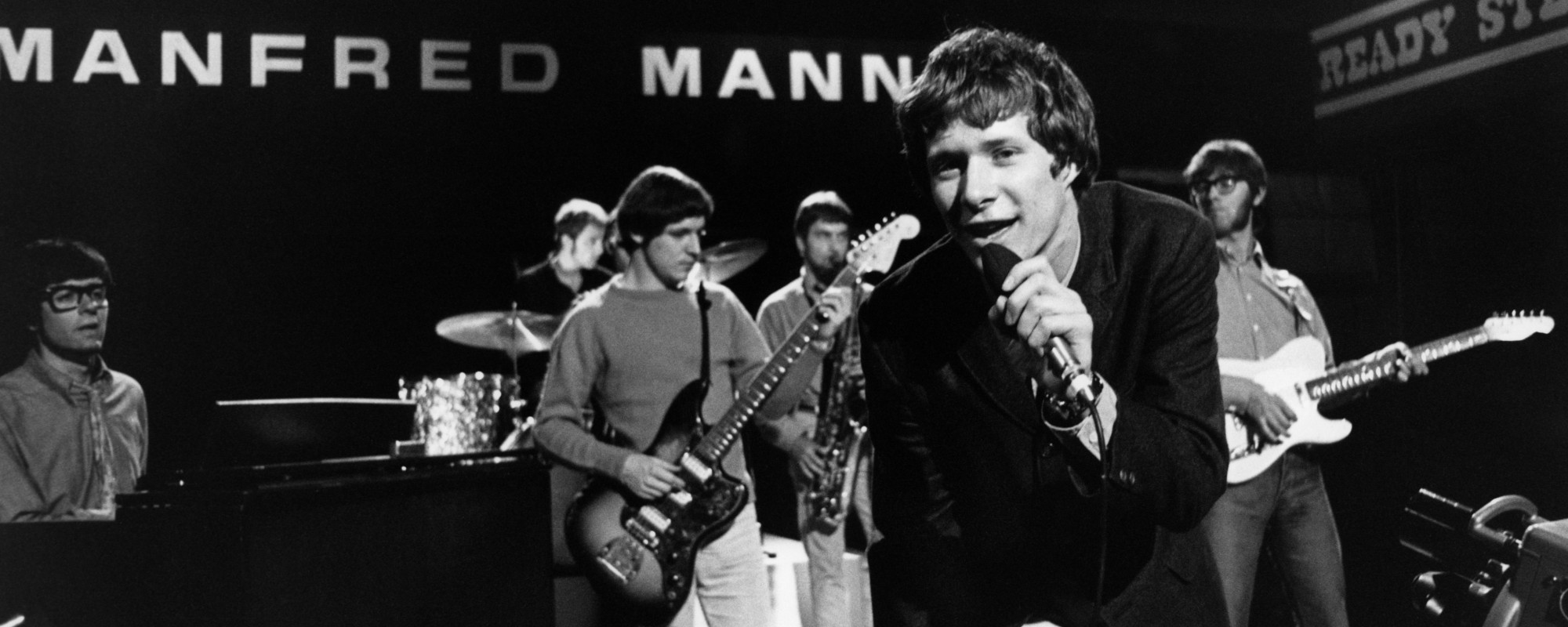
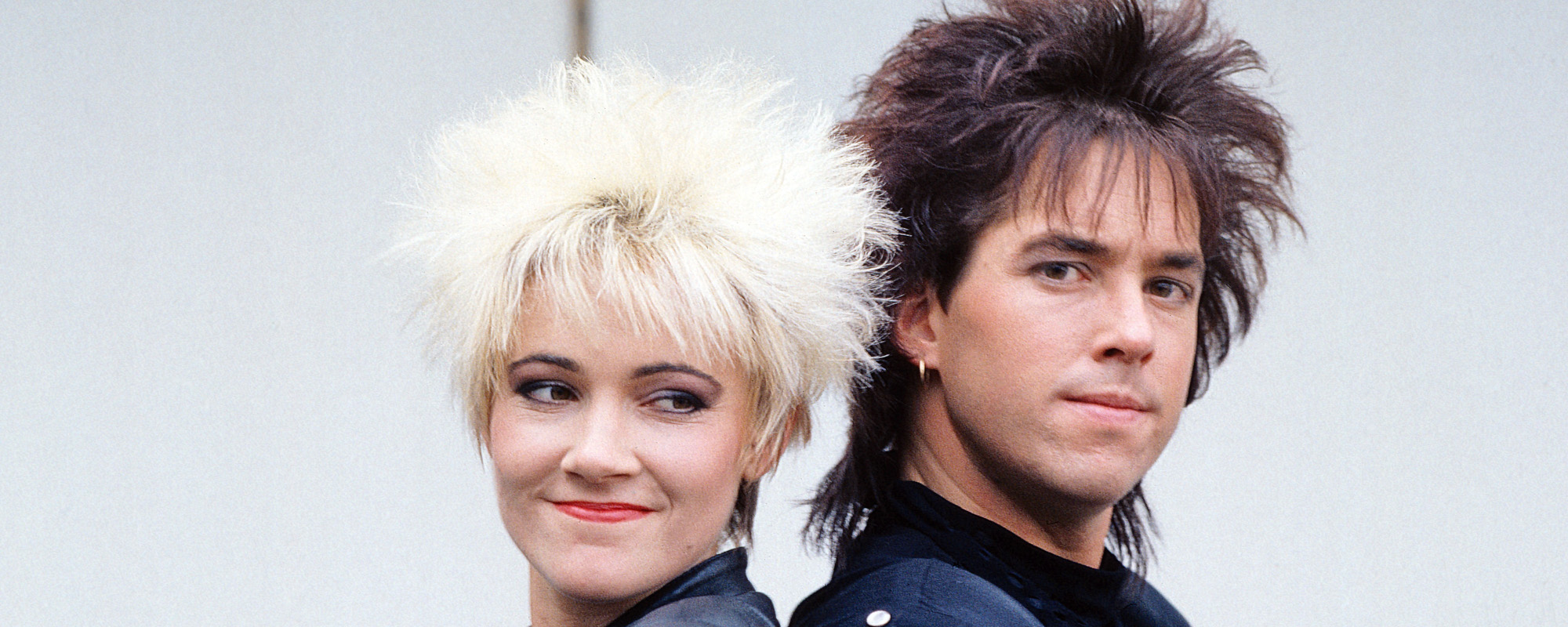
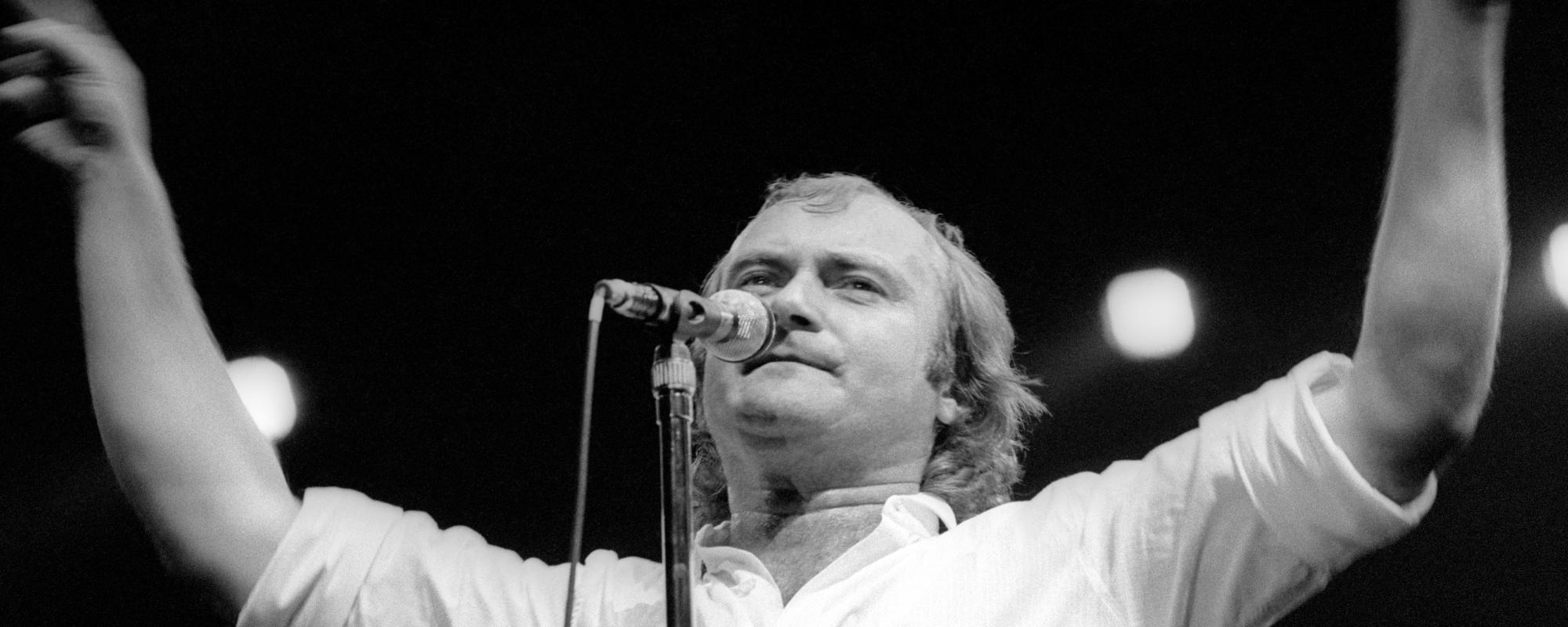
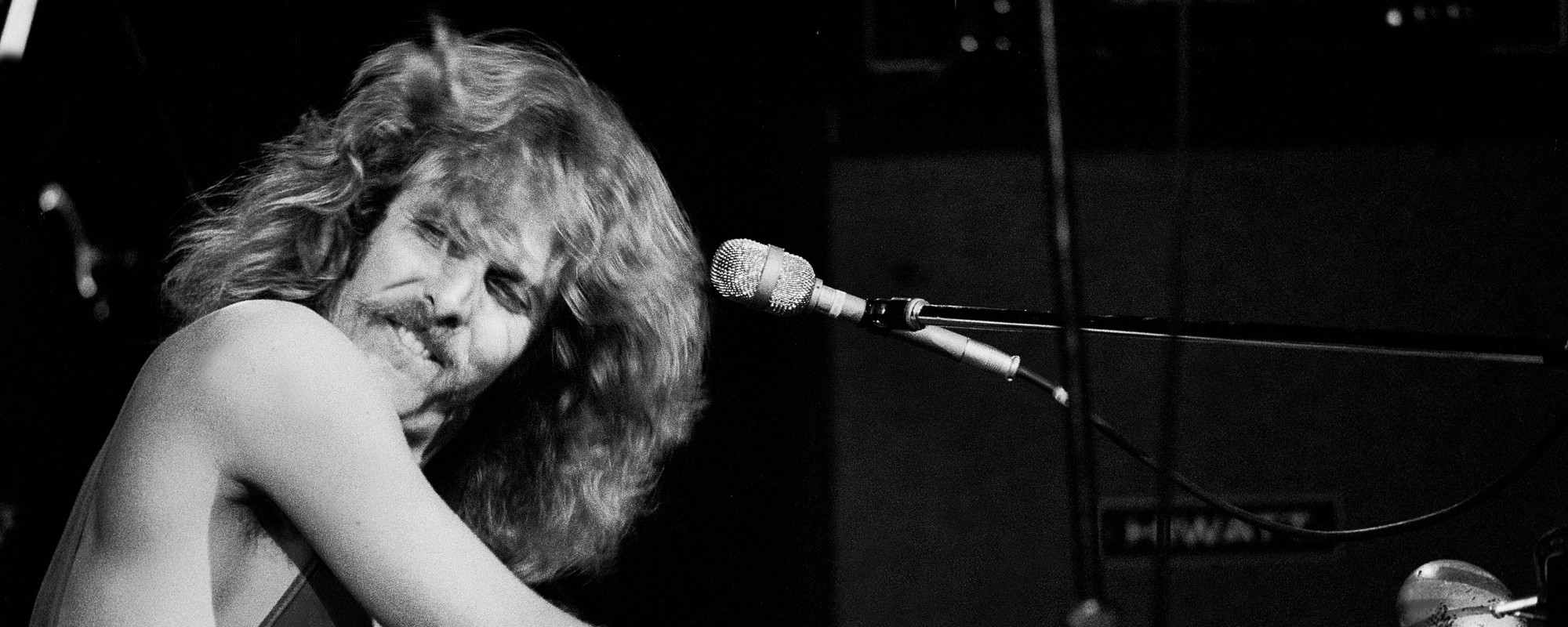







Leave a Reply
Only members can comment. Become a member. Already a member? Log in.